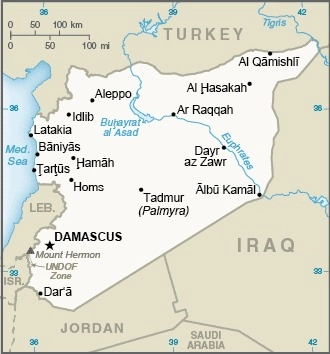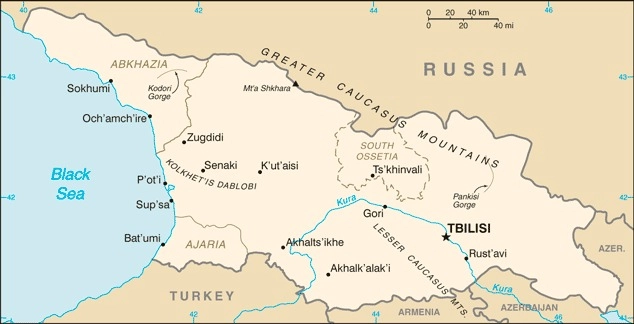Russia Is Starting To Go Through Some Things
While Russia has been focused on destroying Ukraine, things have been happening in other places. An anti-government group in Syria has taken Aleppo, and Georgia is experiencing major unrest in Tbilisi in response to the Russian-leaning government’s withdrawal from talks to join the EU.
Aleppo is Syria’s second largest city, and the group that seized it, Hayat Tahrir al-Sham (HTS), is pushing toward the capital, Damascus. HTS is a hard-line Islamist group; life under them may not be an improvement for the people of Aleppo. HTS seems to have built an alliance with other anti-government groups. This is a change from earlier fighting among those groups as well as with the government. HTS was associated with al-Qaeda but claims to have broken away.
The government of Bashar al-Assad and its Russian allies seem to have been asleep when HTS attacked Aleppo, but they are coming into action.
From the Institute for the Study of War,
The Russian Ministry of Defense (MoD) reportedly replaced Lieutenant General Sergei Kisel with Colonel General Alexander Chaiko, who will reprise his previous assignment as commander of the Russian force grouping in Syria, though it remains unclear how Russian operations in Syria may change.
In Georgia, the Russian-associated Georgian Dream party suspended EU accession talks until 2028, an outcome favorable to Vladimir Putin’s interests of having a near abroad buffer zone. EU accession is an explicit goal of the Georgian constitution (gift link). Major street protests have continued for the past week, with no sign of letting up. For several months, there have been protests, largely against the actions of Georgian Dream. A first-person photographic report from Tbilisi.
A number of officials, including the ambassador to the United States, have resigned, and the president, Salome Zourabichvili, says she will not resign when her term ends in a few weeks. She says that Georgian Dream rigged the election and has become central to the opposition.
Additionally, sanctions and war expenses are beginning to affect Russia’s economy. The ruble passed an exchange rate of 100 to the dollar last week, and military spending is almost a third of the just-announced national budget. Interest rates have been raised.
It’s not at all clear how any of this will go, but these are significant distractions for Russia.
CIA maps.
Cross-posted to Nuclear Diner




